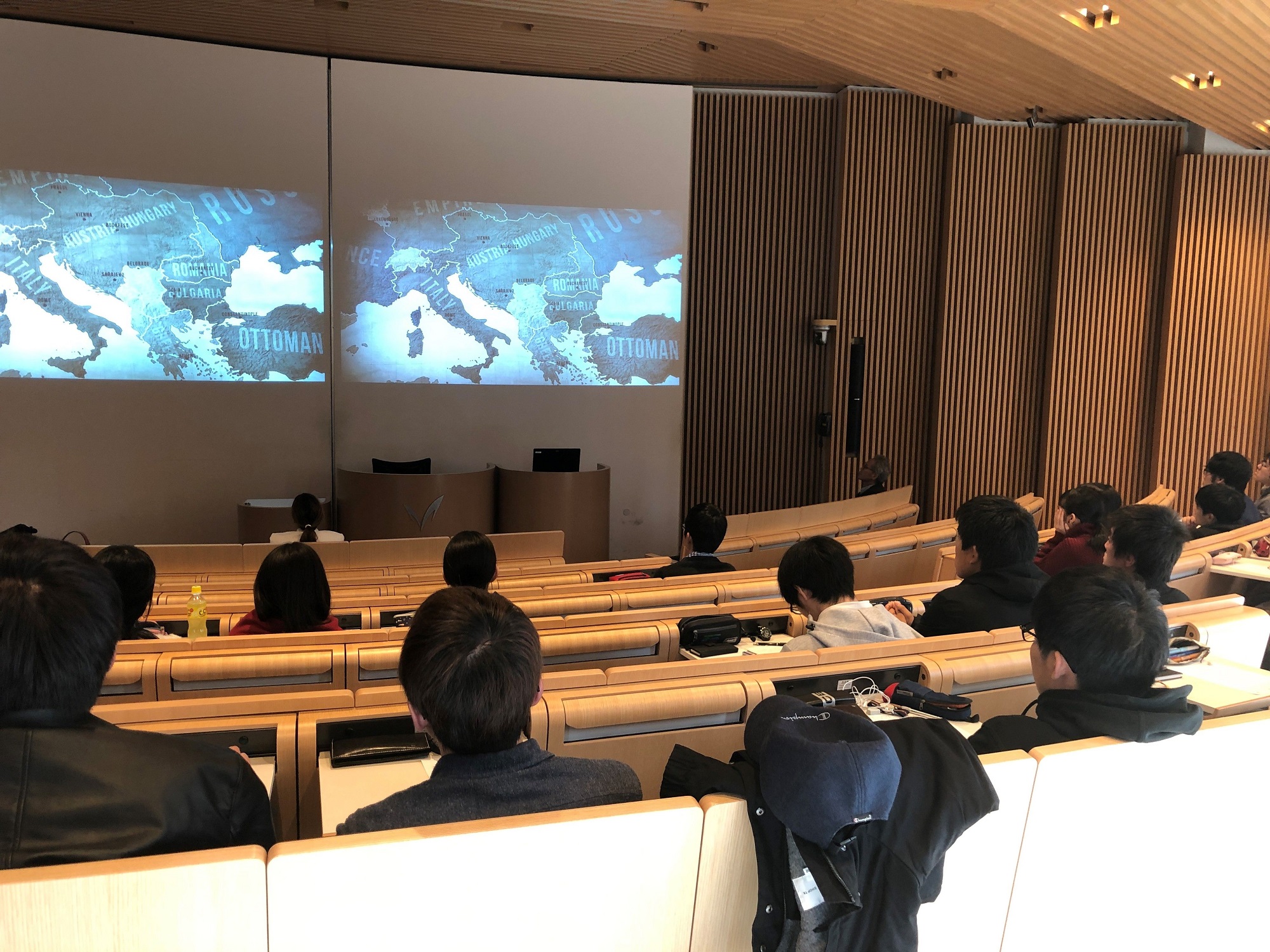Students of the Meiji University School of Arts and Letters attended a screening of "The Long Journey to War", a Serbian documentary film about the causes of World War I, directed by Miloš Škundrić. The screening held on 21 November was sponsored by the Serbian Embassy in Tokyo, in cooperation with the Ministry of Foreign Affairs and the Ministry of Culture and the Media of the Republic of Serbia.
Professor Koichi Toyokawa from the Department of History and Geography of the School of Arts and Letters said that the film offered an opportunity to students to familiarize with a number of international level events dating back to the early 20th century, as indicated in the title of the film that acted as a prelude to the developments to come.
Ms. Jelena Nikolic and Ms. Tijana Nagato from the Embassy presented a summary of the feature and underlined in particular that, unlike some of the recent historical interpretations, the film offered documentary evidence and an unbiased insight into the multifaceted causes of the war and the position and role of Serbia in this context, while using footage obtained from the film archives of the United Kingdom, France, Austria, Russia, Germany and Serbia, including interviews with the most prominent European historians.
After the screening, the representatives of the Embassy discussed with the students the far-reaching political, economic and social consequences the war had on the history of Serbian people. They underlined that of all warring parties Serbia had suffered the heaviest losses relative to its population, which was a not a widely known fact and even less so in Japan. They showed the guests a badge with the ramonda nathaliae flower, explaining the symbolism of this emblem for the people of Serbia.
The students showed interest in the details of the Serbian soldiers' heroic feats, the Albanian Calvary and in the impact the Salonika Front breakthrough had on the war ending. Many students agreed that this was a rare occasion to see films addressing these topics in Japan, and that they saw for the first time documentary footage of this period of Europe. They said that Japanese textbooks usually taught the topic of World War I from the Sarajevo assassination onwards, and that this was the first time that they had an opportunity to learn about the developments in the international arena preceding the war, which Professor Toyokawa also confirmed.
The Meiji University was established in 1881 as the Meiji Law School and is today heralded as one of the pre-eminent universities in Japan. The University includes four campuses, a home to over 32,000 students attending undergraduate and postgraduate studies. The University has been cooperating with the University of Belgrade under the Cooperation Agreement and the Memorandum on Students Exchange signed in 2009.
